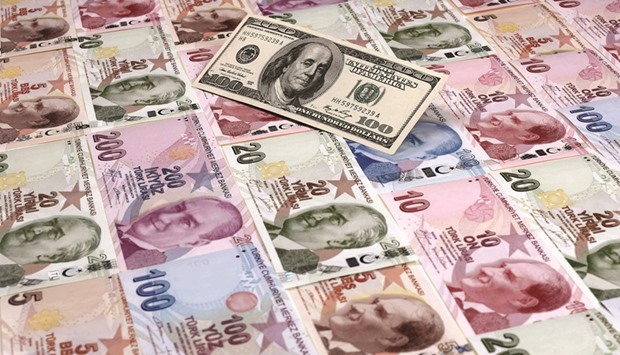Turkey’s economy expanded more than forecast in the first quarter on household consumption, which grew by the most in five years following a 30% increase to the official minimum wage.
Gross domestic product grew 4.8% in the January-to-March period compared with 5.7% in the previous quarter, Turkey’s state statistics bureau said on Friday. The median estimate of 17 analysts in a Bloomberg survey was 4.4%. Seasonally adjusted output rose 0.8%.
Households’ expenditures, which makes up more than two-thirds of the economy, rose by 6.9%, the highest pace since the third quarter of 2011, while government spending grew 10.9%, the most since 2009, Turkstat said. The minimum wage increase as well as a refugee influx from neighbouring Syria drove the increase in consumption, said Kapital FX economist Enver Erkan, whose 4.7% GDP forecast was the most accurate in the survey.
“It gives you the numbers but it’s hard to call it healthy growth,” Erkan said by phone, referring to the one-time nature of what’s driving expansion. “The strength of domestic demand is mainly due to the rise in minimum wage earners’ income. Then you have refugees who are spending more than before.”
Turkish growth has beaten estimates since the fourth quarter of 2014, mostly due to household consumption, according to data compiled by Bloomberg. The recent strength of private demand may stem from the millions of Syrians and Iraqis that have sought refugee in Turkey, Morgan Stanley said in March.
Turkey will continue to implement structural reforms that will allow the economy to grow at high pace, Turkey’s Finance Minister Naci Agbal said in e-mailed comments.
The size of Turkey’s annualised economy in current prices fell to $708.7bn from $720bn at the end of 2015, Turkstat said. The lira lost nearly 20% against the dollar last year.
Separately, the central bank reported Turkey’s current-account deficit narrowed for a ninth month in April, to $2.96bn from $3.86bn a year earlier, as the cost of imported energy fell. The median estimate in a Bloomberg survey of 13 analysts called for a $3.4bn gap.
The annualised gap has been shrinking since August as lower oil prices reduced Turkey’s energy imports bill.

The lira lost nearly 20% against the dollar last year
